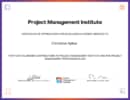The Key Differentiator in the Job Market
As technology continues to reshape the world around us, education has evolved from traditional lecturing-style teaching to experiential learning. With the advent of AI, we now have access to a wealth of information at our fingertips. However, more than merely access to information alone is needed to prepare the next-generation workforce. To keep up with the pace of change, modern education must shift its focus from an information-based approach to an experiential learning method.
First and foremost, experiential learning puts the individual at the center of the learning process. Experiential learning values hands-on experience over traditional information dissemination. This enables learners to develop real-world skills and apply them in practical settings.
Secondly, experiential learning emphasizes social and collaborative learning. The presence of a community and collaboration leads to enhanced learning outcomes. Discussions, reflections, and feedback from peers and teachers provide a richer and more holistic understanding of the topic. The social learning element fuels a continuous loop of learning as learners absorb, apply, discuss, reflect, and finally absorb new information based on this richer understanding.
Thirdly, experiential learning methods are adaptable and allow for a personalized learning experience. With traditional teaching methods, learners had to cope with a structured curriculum without any say in how they would like to learn. Experiential learning allows learners to tailor their courses to their interests and strengths, resulting in a more engaging and enjoyable learning experience.
Fourthly, experiential learning develops the whole person. Developing life skills such as leadership, teamwork, and communication is as important as acquiring knowledge in the modern workforce. By focusing on the overall development of the learner, experiential learning is geared towards producing individuals who can make a meaningful contribution to society.
In conclusion, experiential learning is a crucial differentiator in course delivery. It offers;
- a practical method for quality education for learners to acquire valuable life skills,
- develop a deeper understanding of the subject,
- engage in a more meaningful way with peers and teachers, and
- improve overall learning outcomes.
As the world continues to change at an unprecedented pace, learning must make a shift towards experiential learning to prepare you for success in your personal and professional lives.
We offer advisory services, customized training and workshops that identify potential risks and opportunities within your environment, as well as develop alternative strategies to help you optimize your operations. If you have any questions, ask us!






